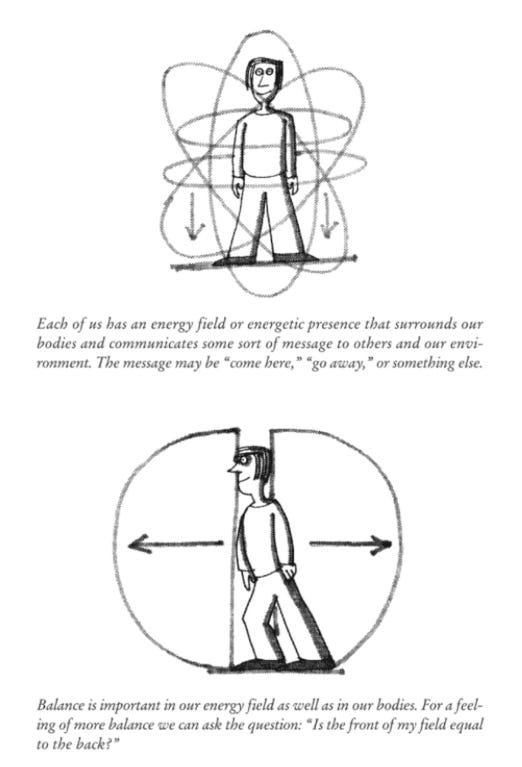Soul Trait Studio: Tevet 5785 | Curiosity
Practice guide for the Soul Trait Studio mussar practice for Tevet 5785 (1/5/25) focusing on the soul trait of "Sakranut" | Curiosity.
Each month I host an open session called Soul Trait Studio, a mussar practice session focused on the soul trait of the month. The current month’s practice guide is available to all and previous months are available to subscribers at the monthly, yearly, or beloved levels.
Come when you can. All registrants for the month will receive the video the following day. The Soul Trait Studio for Tevet 5785 is January 5, 2025 from 3-4:30pm ET on Zoom, registration required - no charge but your time.
Register for this and upcoming sessions: devotaj.com/soultraitstudio
I consider your time to be the exchange for this offering, which is why I don’t charge money to register. While it is always an option to attend on your own time, via the recording I send out the next day, these sessions remain free of monetary charge because of those who do commit to attending in real time.
Sakranut Resources
Sakranut (סקרנות) curiosity is the soul-trait that allows us, most directly, to assess and adjust our nefesh (outer-soul) to a healthy flexible state. It’s also the soul-trait that we need to heal our nefesh, if we discover that has become too hardened or too porous.
Devotaj Sacred Arts: Mussar Practice eBook with guides to each soul trait of the year
Sakranut: Curiosity by Ketzirah
In Search of the Holy Life: Rediscovering the Kabbalistic Roots of Mussar by Ira Stone (Chapter on “Tender Curiosity”)
Modern Musar: Contested Virtues in Jewish Thought by Geoffrey D. Claussen (Chapter 2)
Making Mensches: A Periodic Table (JewishCamp.org)
From Enemy to Friend: Jewish Wisdom and the Pursuit of Peace by Amy Eilberg (Chapter 5: The Ways of Peace — Curiosity pg. 321-329)
Transforming Periods into Question Marks: Cultivating a Curiosity Practice by Rabbi Lexi Erdheim
Monthly Practice
Note: we rarely get through all of this during the 90 minute session, so consider the entirety of it to be an invitation for your personal practice this month. This guide will remain available to all until the end of the month. Previous monthly guides are available to subscribers at the monthly, yearly, or beloved levels.
Opening Chant
Loosen, loosen baby
You don’t have to carry
The weight of the world in your muscles and bones
Let go, let go, let go
Holy breath, and holy name:
Will you ease, will you ease this pain?
Soul Trait of the Month
The Journey:
Last month: Kislev | Moon of Dreaming | Yirah (יראה) Awestruck | Baalat Ov (בעלת אוב) Witch/Shamaness
Now: Tevet | Moon of Clarity | Sakranut (סקרנות) Curiosity | Doreshet (דורשת) Seeker
Next Month: Shevat | Moon of Centering | Ahavah (אהבה) Love | Ohevet (אוהבת) Lover
Cheshbon HaNefesh:
What does sakranut (סקרנות) curiosity mean to you right now.
In this moment where, when, how will it benefit you (and the world) for you to activate your curiosity:
Softening your boundaries to let more of the world in
Strengthening your boundaries to better protect yourself
Unlocking barriers that you feel bound by
Engaging with wonder-filled curiosity
Acknowledging your self-defensive driven curiosity
What might it mean to act with sakranut she’be tiferet?
What might it meant to behave with tiferet she’be sakranut?
Text Study
Partnered text study. One per breakout room.
Explore what the text teaches you about sakranut AND how it helps you understand how it helps transform yirah (awestruck) to ahavah (love).
Text 1:
The disposition to be interested in and to want to learn new things, a quality generally described in English with the word curiosity (in Hebrew, sakranut) or, sometimes, with the word inquisitiveness (in Hebrew, ḥakranut), is seldom singled out as a virtue in premodern musar literature.
Modern Musar: Contested Virtues in Jewish Thought by Geoffrey D. Claussen
Root letters from Shoroshim
Text 2:
We are wired to be selfish. We are also wired to care for and nurture other people. Mussar helps us to choose the latter when our survival is not actually at stake. Curiosity, the ability to see and wonder about the world beyond ourselves is where it all begin
8 Mussar Miracles for Hanukkah by Greg Marcus
Text 3:
Curiosity is rooted in a powerful mix of bravery and humility: it takes courage to admit, “I don’t know,” and equal humility to plead, “Please teach me.” Rabbi Hillel, in Pirkei Avot, once remarked, “a timid person cannot learn.”[2] Delving deeper into this thought, Rav Ovadiah suggests that those who fear embarrassment might shy away from asking questions, and thus remain confined within their boundaries of knowledge.[3] It’s essential to understand that the growth of curiosity is not just about the individual’s courage. The wider community plays a crucial role in nurturing this trait by fostering a safe environment that embraces vulnerability.
Transforming Periods into Question Marks: Cultivating a Curiosity Practice by Rabbi Lexi Erdheim
Text 4:
By contrast, an attitude of curiosity means that opportunities for learning and expansion of our horizons are everywhere. Every moment of our lives can be a laboratory, an occasion for growth both interpersonally and intellectually.
From Enemy to Friend: Jewish Wisdom and the Pursuit of Peace by Amy Eilberg
Incantations*:
Soften my heart. Expand my mind. Restore my soul to the state of Divine.
These and those. Both I propose. When in doubt kindness I chose.
Fluid and flexible I desire to be. May my neshama be a true reflection of Zhe.
*The term from inherited forms of mussar is “affirmations”. Feel free to think of them this way, if it’s more aligned and/or nourishing for you.
Embodied Practice
Excerpted from Conscious Embodiment as taught by Wendy Palmer.
Spiral Breathing
Direct the exhale downward in a clockwise direction towards the hara point, or the center of the earth; think of the exhale as moving in the same direction as closing a jar.
Make the exhale audible.
Sustain your exhale as long as possible.
Focus on the inhale.
Bring the inhale up from the earth in a counterclockwise direction; think of the inhale as moving in the same direction as opening a jar.
Feel your breath moving through your body and the sensations that arise.
Balancing Your Energy Field
ASK:
Is the front of my field equal to the back?
Is the left of my field equal to the right?
Is the energy above my head equal to the energy below my feet?
PAUSE:
Feel the sensations that arise.
Sense any reorganization of your energy field.
Mitzvah*
Whenever you witness someone doing something you think is wrong, but not harmful, instead of explaining why what they did was wrong — get curious. Try saying something more like, “That’s so interesting. I was taught the practice was XYZ. I’m so curious why you do it LMNOP, will you tell me a little about that?”
Practice cultivating "vuja de" when engaging with people, topics, or situations you "think" you know all about.
"With déjà vu, you go somewhere you’ve never before been yet it seems oddly familiar; conversely, when you look at something familiar and suddenly see it fresh." (A More Beautiful Question by Warren Berger)
*I translate mitzvah as “sacred connective action.” In other forms of mussar these are often called kabbalot, committed practices to help you take the practice in the world around you.
Embodied Mitzvah:
The Flavor of Curiosity
Invite 5 people to ask you anything, a single question each. Notice your energy and boundaries before you start. As the first question is asked, imagine it as a flavor as you take it in both intellectually and emotionally. As you formulate an answer - explore the flavor of how you respond. Take note of the flavors without judgement.
Each person who asks the question should imagine the flavor of their question before they ask it, and then notice if there is a shift in the flavor as they observe how you receive it. The observers waiting to ask questions should do the same.
The questioner may NOT ask follow questions. They may simply respond with the word shmati (שמעתי), Hebrew for “I heard.”
Get curious about the questions, why they are asked, what it says about the person, what it says about you. Get curious about your somatic, intellectual, and emotional response. Get curious about how you choose to answer each questions. Get curious about the person’s response to your response. Get curious about your body and sense of boundaries as the questions continue - do you soften or harden? Get curious about the flavors you imagine or perceive.
When all five questions have been answered share the flavors of your curiosity and imagine a blend that helps to inspire healthy curiosity.
Note: It’s up to you if you answer their questions. But the same curiosity should apply, if you choose to pass on a question.
Journaling Prompts:
WHAT does sakranut (סקרנות) curiosity mean to you? What are you most curious about right now?
What does it mean to act with sakranut she’be tiferet?
What does it meant to behave with tiferet she’be sakranut?
WHO inspires your curiosity?
HOW do you engage with your curiosity?
WHEN do you find it difficult to be curious?
WHY is it important to you to stay curious?
WHERE is curiosity lacking in your life, soul, experience right now?
Closing Chant
Loosen, loosen baby
You don’t have to carry
The weight of the world in your muscles and bones
Let go, let go, let go
Holy breath, and holy name:
Will you ease, will you ease this pain?
—----








